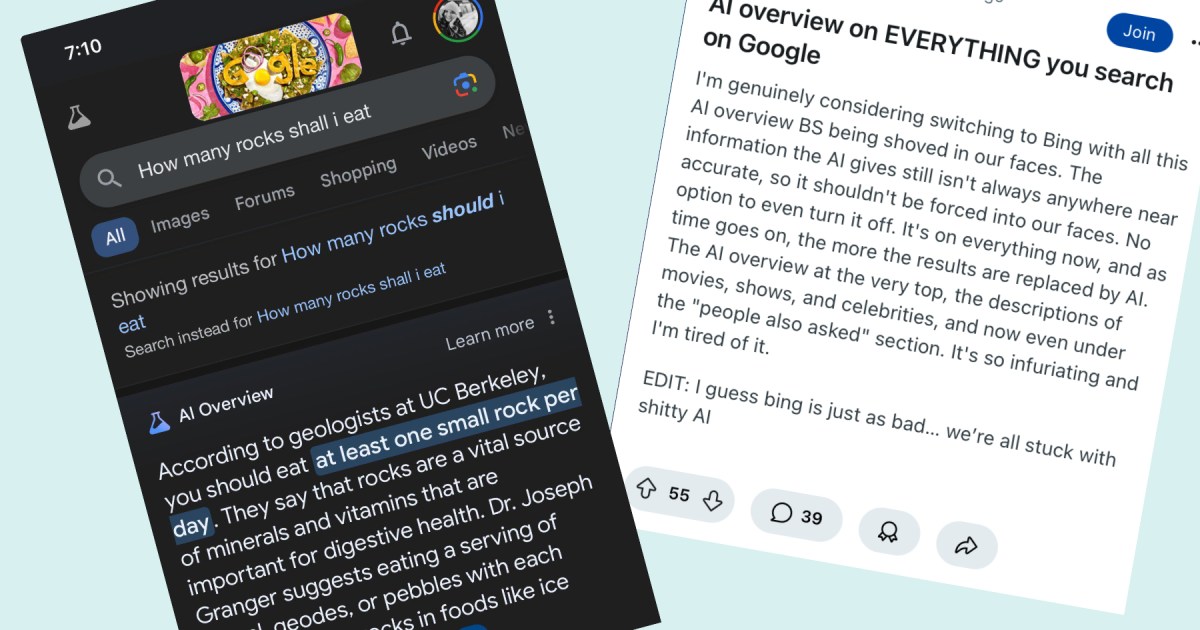The latest AI trend is a funny one, as a user has discovered that you can plug a made-up phrase into Google and append it with “meaning,” then Google’s AI Overview feature will hallucinate a meaning for the phrase.
Historian Greg Jenner kicked off the trend with a post on Bluesky in which he asked Google to explain the meaning of “You can’t lick a badger twice.” AI Overview helpfully explained that this expression means that you can’t deceive someone a second time after they’ve already been tricked once — which seems like a reasonable explanation, but ignores the fact that this idiom didn’t exist before this query went viral.
Since then, people have been having a lot of fun getting AI Overview to explain idioms like “A squid in a vase will speak no ill” (meaning that something outside of its natural environment will be unable to cause harm, apparently) or “You can take your dog to the beach but you can’t sail it to Switzerland” (which is, according to AI Overview, a fairly straightforward phrase about the difficulty of international travel with pets).
It doesn’t work for all cases though, as some phrases don’t return AI Overview results. “It’s wildly inconsistent,” cognitive scientist Gary Marcus said to Wired, “and that’s what you expect of GenAI.”
Jenner points out that as entertaining as this is, it does indicate some of the pitfalls of relying too heavily on AI generated sources like AI Overview for information. “It’s a warning sign that one of the key functions of Googling – the ability to factcheck a quote, verify a source, or track down something half remembered – will get so much harder if AI prefers to legitimate statistical possibilities over actual truth,” Jenner wrote.
This isn’t the first time that people have pointed out the limitations of information provided by AI, and AI Overview in particular. When AI Overview was launched, it infamously suggested that people should eat one small rock per day and that they could put glue on their pizza, though these particular answers were quickly removed.
Since then, Google has said in a statement to Digital Trends that the majority of AI Overviews provide helpful and factual information, and that it was still gathering feedback on its AI product.
For now, though, let this serve as a reminder to double check the information which appears in the AI Overview box at the top of Google results, as it may not be accurate.
Read the full article here














